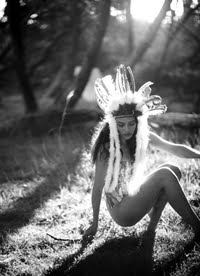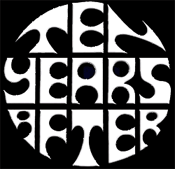

Fronted by San Franciscan poet David Meltzer, the Serpent Power was a sunshiny folk-rock group, whose songs were musical translations of Meltzer's poetry. They were first noticed by Ed Denton, manager of Country Joe and the Fish, when he saw them perform at their first-ever gig, a benefit for the Telegraph Neighborhood Center. This was in November of 1966 -- Denton recommended them to Vanguard Records (Country Joe's label) and by 1967 the band was signed and had released their first and only album.
The Serpent Power was formed by Meltzer and his wife Tina (who sang both lead and harmony vocals), and also included Denny Ellis and David Stenson on lead guitar and bass, respectively, both of whom had gotten their start with San Francisco folksters the Grass Roots. The band became a full rock outfit with the inclusion of John Payne on organ and Clark Coolidge on drums. The album, also entitled The Serpent Power, received a somewhat limited pressing and, despite featuring some excellent examples of folk-rock, the band never got that big, known mostly within the San Francisco area. The album's last track was a raga-rock epic which included electric banjo player JP Pickens, who stayed on as a permanent member as the band entered its second incarnation. Think of the Serpent Power as the Bay Area's version of the Velvet Underground. Led by poet David Meltzer, with Meltzer on untutored post-folk guitar, Meltzer and his wife, Tina, singing his songs, poet Clark Coolidge clattering behind on drums and the soon-vanished John Payne fixing a hole on organ, their music was minimalist folk rock with noise - the climactic, electric-banjo augmented "Endless Tunnel" goes on for thirteen minutes. Some songs began as poems, others didn't, but all feature notable lyrics - some romantic, some gruff, some both. And all but a few are graced by excellent tunes, none more winsome than that of the lost classic "Up and Down."
Ellis, Stenson, and Payne left shortly after The Serpent Power was recorded, replaced by Bob Cuff (who'd come over from folk-pop band the Mystery Trend), on lead guitar and Jim Mocoso on bass. Although they continued reaching in ever-more exploratory directions, the band didn't record another album, and disbanded in 1968. David and Tina Meltzer went on to record another album, Poet's Song, under their own names. ~ Alex Stimmel, All Music Guide























































































0 comments:
Post a Comment